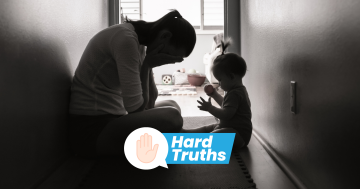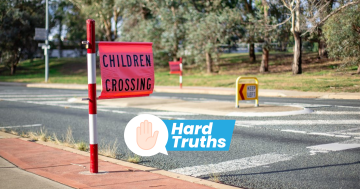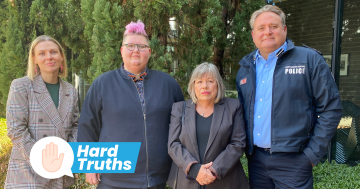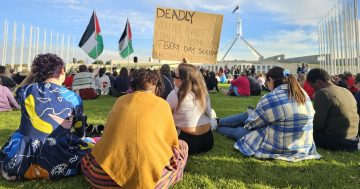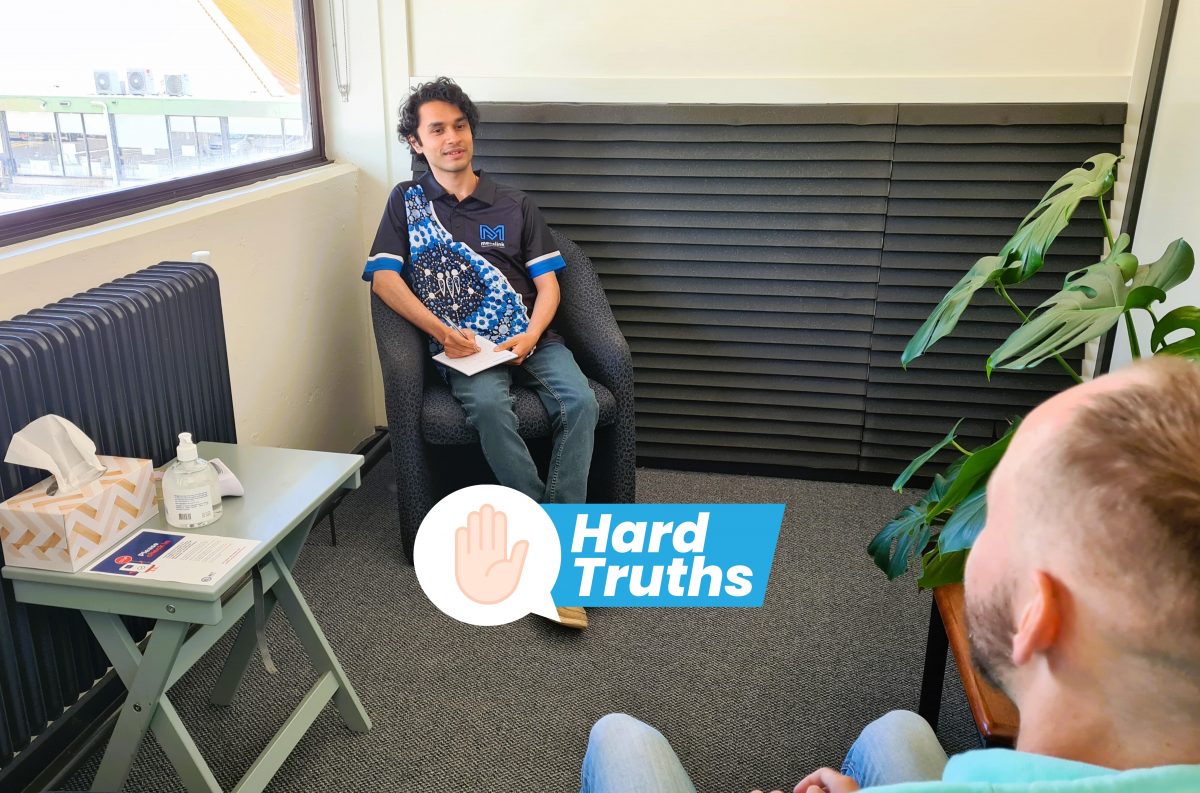
Menslink has been supporting young men across Canberra for over 20 years through free counselling and mentoring services. Photo: Menslink.
If they’ve done it before, they can do it again. Sadly, this is increasingly the case when it comes to family violence.
According to ACT Policing, as many as 179 people apprehended for family violence-related offences between 2022 and 2023 have been detained for the same thing in the past five years.
That means 26 per cent of all family violence offenders are repeat offenders – up from 20 per cent (103 people) between 2017 and 2018.
For more than 30 years, the Domestic Violence Crisis Service has been providing emergency and long-term support, advice, resources and services to the ACT. They’ve seen this too.
“We see names [of perpetrators] pop up in court linked to multiple people who’ve needed our assistance,” CEO Sue Webeck says.
Likewise, Menslink has been supporting young men across Canberra for over 20 years through early intervention and prevention services, offering counselling, mentoring and Menslink in Schools programs. They estimate more than half of their clients reference previous exposure to some domestic violence.
“There’s a lot of domestic violence from kids against parents, against siblings, which will not have been picked up before, but they’ll come in here and we find out it’s been going on for years,” Menslink’s counselling program manager* says.
Repeat DV offences span ages and relationship types. Is there a way of breaking the cycle?
DVCS deals with people on all sides of domestic violence, from perpetrators to children to spouses and partners, looking for a way to live with it, so there is no “prescribed way” to address it.
But Sue says their ‘Room4Change’ program is centred on the “recognition of violence” – in other words, “the underlying values and attitudes that have created an environment where they think using violence against a woman or child is okay”.
“There is no excuse for using violence,” she says.
“It’s always a choice. It’s not a set of circumstances that lead someone to crack. It’s not a set of financial pressures. They can all be drivers. But the person who used violence is the person who used the violence.
“If perpetrators don’t take accountability and don’t take the steps to stop using violence, they repeat those actions in the same or different circumstances in other parts of their life also.
“So we tackle concepts like sexual respect, gender equity and men’s attitudes towards women through the program.”
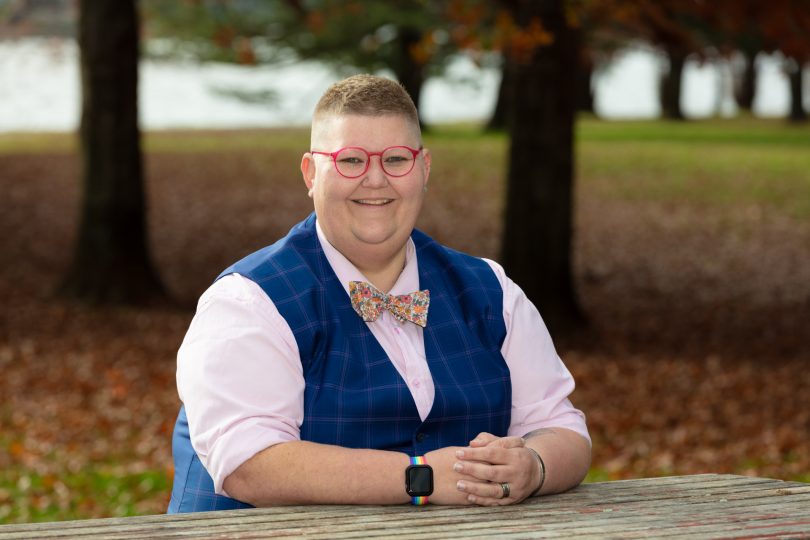
DVCS CEO Sue Webeck: “There is no excuse for using violence. It is always a choice.” Photo: Michelle Kroll.
Menslink echoes this approach.
“If someone is repeatedly using violence to try to get a need met, we don’t justify and say that’s okay because the use of violence is not,” Menslink’s counselling program manager says.
“We’ll look at that underlying need and explore other ways to address that need that are actually going to work better for the person and for the person’s family, instead of violence.”
No matter the organisation, all counsellors attempt to find the individual’s “motivation for change”. This is especially important in court referrals, where clients are mandated to attend a set number of counselling sessions. Both Menslink and DVCS want the offender to want change.
“We know the only way we can do that is when a person feels able to open up and be honest,” Menslink’s Counselling Program manager says.
“It might be, ‘I’m using violence because, actually, I’m really frightened of being alone’. So we will question, ‘How is that working?’ and then explore other ways of doing something different’.”
There are definitely cases where someone has witnessed trauma growing up at home and then taken to lashing out against siblings and schoolmates and later a partner or child, but Menslink emphasises that doesn’t necessarily breed violence.
The counsellor suggests there’s “a lot of focus on if you’ve witnessed or been exposed to domestic violence, you’ll become a user of violence, but this may present in other ways”.
“Witnessing violence in the home might cause withdrawal anxiety, eating disorders, alcohol abuse, loss of friendships – all sorts of things. However, we also see young fellows experiencing violence in the home using power in a range of different ways to feel better about themselves.”
Positive male role models are also important in a young man’s life and Menslink’s counsellors and mentors strive to provide exactly this. As Menslink’s Penny Burns recalls from a young man’s participation in a recent ‘Wilderness Experience’, this can have a powerful impact on its own.
“We received a letter from his mum to say he was kinder to her and his sister because he had been shown kindness from another young fella who was also part of the group,” Penny says.
“So it’s not just the direct services we offer these young people – it’s also the strength of our community where young people support each other for positive change.”
It’s clear organisations like Menslink and DVCS are helping steer some away from reoffending, even if the issue will never be solved.
“We know it works for some, but it’s not a panacea,” Sue from DVCS says.
“We would never say a program like Room4Change or any men’s behaviour change program has a particular outcome for particular men using violence because you’re only ever going to know that at the end of life.”
If you are experiencing domestic or family violence, DVCS has a 24-hour crisis response line 6280 0900.
If you are in danger or if it is an emergency, call Triple Zero on 000.
For support from Menslink, call 6287 2226.
*The Menslink counselling program manager has requested anonymity.













